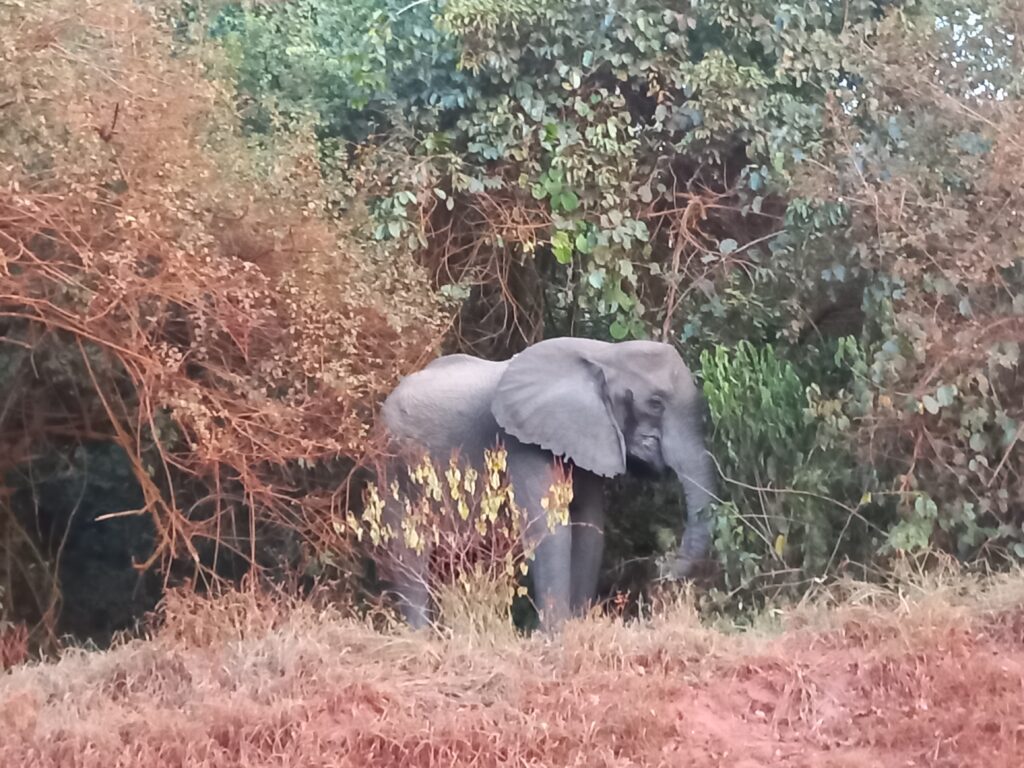It might take a while for Shimba Hills and many other Kwale residents affected by human-wildlife conflicts to find peace.
However, the good news is that there is light at the end of the tunnel. A hope that they have been eagerly waiting for the past years.
This follows the announcement by the Kenya Wildlife Services to bring to an end the long-suffering of the Kwale people who have suffered at the hands of the rogue animals.
The locals have been watching helplessly as the uninvited baboons, elephants and monkeys cause massive damage to their crops and property.
The residents have lived to resent the wild animals whose existence reminds them of nothing but misery.
KWS county senior warden officer Jacob Orahle said plans are underway to upgrade the Shimba Hills electric fence that will be covering over 50 Kilometres.
The high-voltage fence is set to bar marauding jumbos and other wild animals from breaking into people’s farms and homesteads to prevent further disasters.
The elephants in the area have mastered the technique of outwitting the current electric fence by using their powerful tusks and legs.
The animals normally breach the fence at any time of the day adding bitterness and hopelessness to the residents who have no energy to fight back.
The residents decry that the elephants have brought nothing but chaos, losses and deaths to them.
At least more than 10 people have been killed and several others seriously injured by wild animals in Kwale for the past four years.
Among the killed are minors whose lives were cut short.
But Orahle said that all the misery and troubles might soon be over as the upgraded fence will effectively repel the elephants from penetrating.
“The elephants are clever because they use their task to break through but this time the fence will have more wires and voltage,” he said.
Orahle said the fence will help the government buy time and gather enough resources to relocate the rogue elephants.
He said the exercise is too expensive and requires more than one million to relocate a single elephant.
“The fence might be a permanent solution but please be patient as the government tries to allocate money to transfer the disturbing elephants,” he said.
The wild animals are believed to have migrated from Tsavo national park to Kwale.
They are escaping the biting drought in search of food and water.
Another factor that contributes to the increased human-wildlife conflicts is forest land encroachment by residents who have established farms and settlements too close to the forests.
The residents have, however, welcomed the government’s plans to contain the animals.
The farmers said that they have for the past three years not registered good harvests.
Hundreds of farmers in Kinango, Lunga-Lunga and Samburu living in human-wild conflict hotspot zones share the same fate.
Agatha Musyoka a Shimba Hills resident said the wild animals have disrupted their livelihoods and spurred hunger.
“The destruction of our crops is a common thing and we rarely have nothing to eat,” she said.
Musyoka said the containment of elephants will help restore the food production rate.
Shimba Hills is one of the many Kwale food basket zones because of fertile soil and cool weather.
But frequent animal invasions affected the ability of the area to produce food as crops are being destroyed by elephants while farmers quit farming due to fear of attack.
Janet Kilonzo said if KWS plans to contain the animals and prevent perrenial conflicts are genuinely it will save them from great losses and become rich.
Kilonzo, however, warned that the failure of the government to take action soon enough will force them to launch offensive retaliations against the elephants.
“If you fail to address our issues then we will deal with your elephants,” she said.
Another farmer Samson Tole said KWS should start growing food and fruits in the forests to curb animals from moving out.
He said the residents are tired of the wild animals’ menace and it is time for the government to intervene.
Francis Nganda said the hostility between wildlife and humans has entered a red zone.
He said if the government is not keen enough it will spearhead illegal poaching and residents will remain silent.
A week ago a section of Shimba Hill residents protested against the wild animals’ attacks after elephants destroyed a countless crops.


